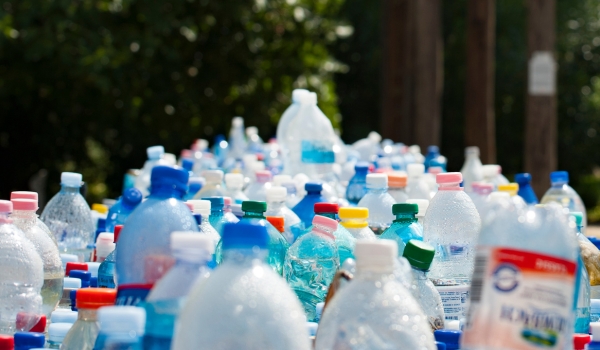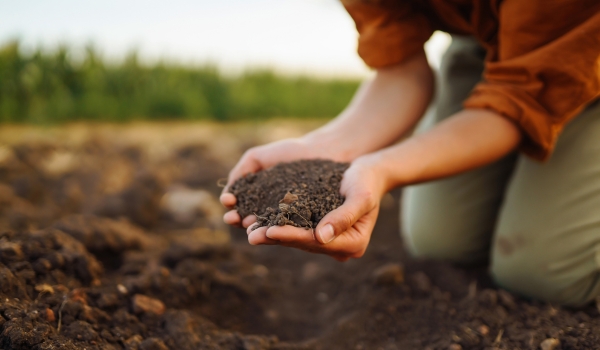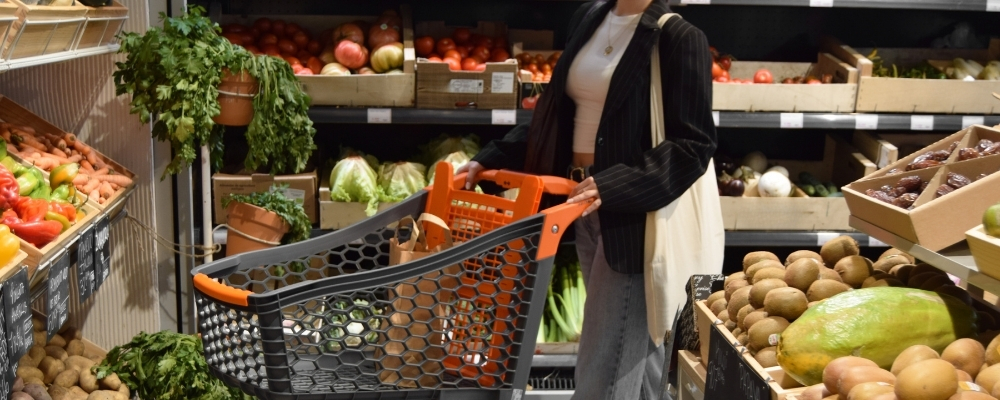Every product on every shelf has a story. Where it was made, how it was packaged, and where it will ultimately end up. What happens after a product has been used is at the heart of the circular economy. Coles is winning market share in Australia’s grocery wars. Sales are up, profits are strong, but there’s more to the story. Behind the checkout lanes and loyalty points, another race is underway – the one to build a more sustainable, circular economy.
Supermarkets shape how products are sourced, sold, and disposed of. That gives them a huge opportunity to drive Australia’s 2035 goals. Coles was the Innovation Zone Sponsor at ReGen 2025 and spoke with Fear + Greed podcast about their efforts to support the circular economy.
Cutting waste, keeping materials in circulation and supporting sustainable business models all contribute to the circular economy. “Circularity is one of our three strategic pillars, alongside climate and nature,” says Brooke Donnelly, General Manager of Sustainability at Coles. “Our ambition is to transition towards the circular economy by materially reducing waste through recycling, reuse, and product stewardship.”
Sounds like a big goal, but what does that actually look like in practice?
Can Soft Plastics Go from Problem to Circular Solution?
Packaging is both essential and problematic in the circular economy. For example, soft plastics are hard to recycle but vital for keeping food fresh and safe. Instead of walking away from the challenge, Coles has leaned in.
Together with Woolworths, ALDI, and leading brands, Coles helped launch a soft plastics recycling program, rebuilding the country’s soft plastics recycling system. “We know the problem’s too big for any one player to solve,” states Donnelly. “The actual stream that makes up for retailers is only about 20 or 30%. 70-80% of the soft plastics come from other sources across the stream.” It’s a powerful example of how collaboration fuels progress toward circular goals. Even in one of the most competitive industries in the country, supermarkets are learning to cooperate on sustainability.

How Can Food Waste Be Rescued, Reused and Recycled?
The circular economy isn’t only about packaging, it’s also about what happens to the food itself. Globally, nearly 30% of all food produced goes to waste. Coles is attacking the issue from multiple angles, focusing on what Donnelly calls a “hierarchy of action.”
Top priority is rescue, redirecting surplus food to those in need through partners like SecondBite and Foodbank. Then comes reuse, such as donating unsold bakery goods to farmers for animal feed. Finally, recycle, turning inedible waste into compost or insect-based fertilisers. “We have a series of different levels of interventions that we take to make sure that our food waste doesn’t actually go to land full and it’s actually reused where we possibly can.” says Donnelly. That’s the circular economy in motion, turning waste into resources and closing the loop between production and consumption.

What Happens When Supermarkets Stop Competing and Start Collaborating?
When asked what success looks like, Donnelly doesn’t talk about being the “most sustainable supermarket.” Instead, she talks about shared progress.
Donnelly emphasises, “when we think about things like a climate or a circularity transition or a nature transition, it requires everybody to step forward together at the same time and go down the same pathway.” From competition to collaboration, the circular economy depends on it.
Where Do We Go from Here?
As Australia pushes toward its circular 2035 goals, supermarkets will play a critical role. They sit at the heart of consumption, logistics, and waste, a perfect testing ground for circular innovation. But achieving real sustainability will take more than recycling bins and better packaging. It means rethinking the entire system: how products are made, sold, reused, and eventually recycled. If the circular economy is about keeping value in motion, Coles is proving that big changes can start with everyday actions.
ReGen Expo is the perfect place to learn more about the waste and circular space in Australia. Meet the leading brands, government bodies and industry professionals contributing positively to the circular economy. Secure your stand early or become a sponsor to maximise your presence at ReGen. Contact us today.


